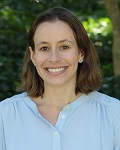2020
Jessica MacLellan

Dissertation Abstract
"Households, Ritual, and the Origins of Social Complexity: Excavations at the Karinel Group, Ceibal, Guatemala"
In my dissertation, I investigate the role of household ritual in the development of complex society at the Maya site of Ceibal, in Guatemala. Ritual creates social change, because it simultaneously unites communities and fosters divisions within those communities. Ceibal was the ideal location at which to explore the relationship between domestic and public ritual during the development of Maya civilization, because the site was founded as a ceremonial center around the transition to sedentary life and intensive agriculture. My dissertation research consisted of four seasons of extensive excavations at the Karinel Group, an early residential area at Ceibal, along with laboratory analyses in Guatemala City and bibliographic research into other early Maya sites. I developed a fine-grained chronology of the Karinel Group through careful analyses of stratigraphy, ceramics, and radiocarbon dates.
My work contradicts a widespread assumption that public rituals must grow out of domestic predecessors and shows that ritual plays a variety of roles in social change. I find that the transition from a more mobile lifestyle to a more sedentary one was gradual and piecemeal, since the earliest known permanent dwellings at Ceibal significantly postdate the public plaza and its first communal ritual deposits. Domestic and public rituals at Ceibal had little in common until about 350 BC. In the early, relatively egalitarian community, separate household rituals centered on low circular platforms existed in tension with increasingly hierarchical rituals involving greenstone axe caches in the public plaza. The ancestor veneration rituals seen in northern Belize are absent at Ceibal and in reports from other parts of the Maya lowlands, suggesting that the social processes that shaped early Maya society differed across regions. Around 350 BC, a major shift occurred across the lowlands, when household rituals became more centralized and similar to public rituals. My research presents a new narrative of the development of social complexity in the Maya area, in which household rituals helped maintain a fairly egalitarian society for centuries, until a sudden and widespread transformation in ritual practices paved the way for the emergence of rulers.
In my dissertation, I investigate the role of household ritual in the development of complex society at the Maya site of Ceibal, in Guatemala. Ritual creates social change, because it simultaneously unites communities and fosters divisions within those communities. Ceibal was the ideal location at which to explore the relationship between domestic and public ritual during the development of Maya civilization, because the site was founded as a ceremonial center around the transition to sedentary life and intensive agriculture. My dissertation research consisted of four seasons of extensive excavations at the Karinel Group, an early residential area at Ceibal, along with laboratory analyses in Guatemala City and bibliographic research into other early Maya sites. I developed a fine-grained chronology of the Karinel Group through careful analyses of stratigraphy, ceramics, and radiocarbon dates.
My work contradicts a widespread assumption that public rituals must grow out of domestic predecessors and shows that ritual plays a variety of roles in social change. I find that the transition from a more mobile lifestyle to a more sedentary one was gradual and piecemeal, since the earliest known permanent dwellings at Ceibal significantly postdate the public plaza and its first communal ritual deposits. Domestic and public rituals at Ceibal had little in common until about 350 BC. In the early, relatively egalitarian community, separate household rituals centered on low circular platforms existed in tension with increasingly hierarchical rituals involving greenstone axe caches in the public plaza. The ancestor veneration rituals seen in northern Belize are absent at Ceibal and in reports from other parts of the Maya lowlands, suggesting that the social processes that shaped early Maya society differed across regions. Around 350 BC, a major shift occurred across the lowlands, when household rituals became more centralized and similar to public rituals. My research presents a new narrative of the development of social complexity in the Maya area, in which household rituals helped maintain a fairly egalitarian society for centuries, until a sudden and widespread transformation in ritual practices paved the way for the emergence of rulers.

